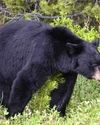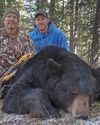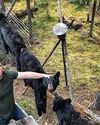
With 2020 finally behind us, the promise of a new year looms. It has to be better than the hardships of the last year we’ve all suffered through. From the pandemic and mandates to the election season and economy, 2020 has shown us exactly how precarious of a position our interests – outdoor or otherwise – are actually in.
Make no mistake, our outdoor pastimes and businesses are under attack, too, and the pandemic did nothing to slow that affront. Animal-rights and anti-hunting activists have used any means necessary to pass legislation and have argued any justification in court or before game commissions – from climate change and safety to muddying Endangered Species Act science and infringing on the Second Amendment – to stop wildlife management tactics. Just as every state in the Union faced fallout from the pandemic, and each handled it slightly different, every state also handled challenges to hunting, fishing and wildlife management differently, which had different outcomes for sportsmen. Legislation to end the year typifies the diverse means of wildlife management across states and nationally.
NEW JERSEY BEAR BAN UPHELD, DESPITE SCIENCE
A New Jersey Administrative Law Judge issued her initial ruling in favor of Gov. Phil Murphy who unilaterally closed black bear hunting on state managed land in 2018. The governor’s decision to close state lands had no scientific backing and was only done to fulfill a campaign promise.
This story is from the January - February 2021 edition of Bear Hunting Magazine.
Start your 7-day Magzter GOLD free trial to access thousands of curated premium stories, and 8,500+ magazines and newspapers.
Already a subscriber ? Sign In
This story is from the January - February 2021 edition of Bear Hunting Magazine.
Start your 7-day Magzter GOLD free trial to access thousands of curated premium stories, and 8,500+ magazines and newspapers.
Already a subscriber? Sign In

THE END OF 2020, CHALLENGES COMING IN 2021
SOMETHINGS EVERY SPORTSMAN OUGHT TO KNOW ABOUT. STAY ENGAGED!

SPRING HUNTING IN MAINE
In 1982 Maine closed its spring season, but you can still spring hunt with an outfitter on some tribal lands.
Bears & Gobblers
SPRING BEAR & TURKEY IN MONTANA

Western Bear Hunting
Picking the right outfitter - Picking the right outfitter can make or break your experience.

Three Phases of the Spring
Understanding the Pros & Cons in the Timing of Spring Bear Hunting

Extreme Utility
Jeff Senger kills for a living.

Canning - Bear Meat
The last six months my non-hunting friends asking increasingly specific questions about how to turn animals into meat.

Bear Dogs - East vs West
The term “bear dog” means something different to every houndsman.

Alaska - One Last Grizzly (DIY)
NOTHING LASTS FOREVER, BUT THE AUTHOR HAS HAD A HECK OF A RUN ON ARCTIC GRIZZLY

Understanding Skull Size in Evaluating Trophy Black Bear
Black bears can be one of the most difficult big game animals to judge before the shot.